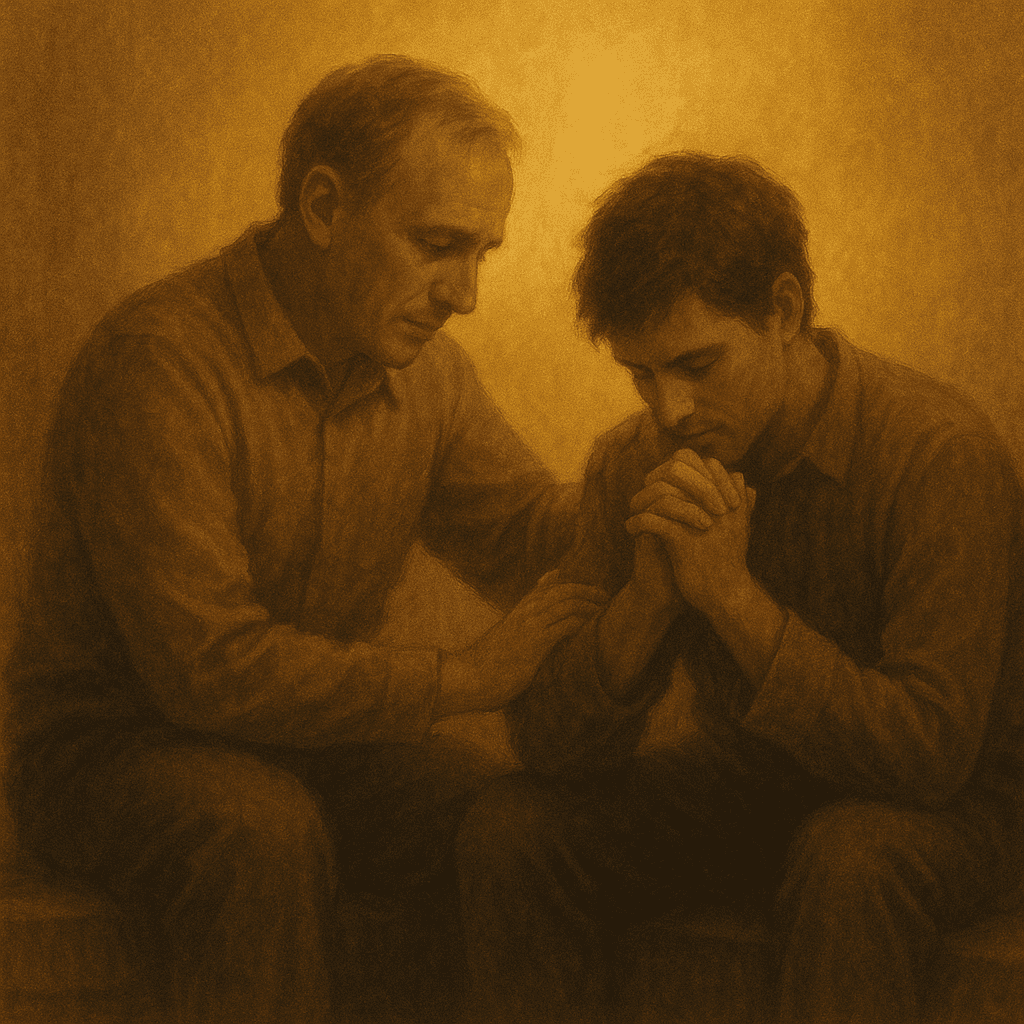Praying for Others: A Call to Stand in the Gap
Prayer is one of the greatest privileges we have as believers. It’s also one of the most neglected. We pray when we need something, when we’re struggling, when we feel overwhelmed. And there’s nothing wrong with that—God invites us to bring our needs before Him. But how often do we go before the throne of grace, praying for others, not just for ourselves?

Paul understood this. In Romans 1:9-10, he tells the believers in Rome:
“God, whom I serve in my spirit in preaching the gospel of his Son, is my witness how constantly I remember you in my prayers at all times; and I pray that now at last by God’s will the way may be opened for me to come to you.”
Paul wasn’t just thinking about himself. He wasn’t just asking for God to bless his ministry or make his life easier. He was constantly remembering other believers in prayer—asking God to strengthen them, encourage them, and open doors for them. And if Paul, a man handpicked by Jesus Christ Himself, saw the need to pray for others, then shouldn’t we?
Intercessory prayer—praying on behalf of others—isn’t just a kind gesture. It’s an act of obedience, a demonstration of love, and a way for us to participate in God’s work in the lives of those around us. The question isn’t should we pray for others, but why wouldn’t we?
Let’s dig deeper into why intercessory prayer is so important, how Jesus modeled it, and how we can make it a consistent part of our walk with Christ.
Why Should We Pray for Others?
Somewhere along the way, many Christians have adopted the idea that prayer is mostly about personal requests. We go to God with our needs, our struggles, our worries—and we should! But Scripture makes it clear that we’re also called to lift up others before the Lord.
Paul tells us plainly in Ephesians 6:18:
“And pray in the Spirit on all occasions with all kinds of prayers and requests. With this in mind, be alert and always keep on praying for all the Lord’s people.”
Did you catch that? Always keep on praying for all the Lord’s people. Not just when we feel like it. Not just when we remember. Not just when they ask.
And it’s not just believers we’re called to pray for. 1 Timothy 2:1-2 says:
“I urge, then, first of all, that petitions, prayers, intercession and thanksgiving be made for all people—for kings and all those in authority, that we may live peaceful and quiet lives in all godliness and holiness.”
All people. That means praying for our families, our friends, our fellow believers. It also means praying for our government leaders—even the ones we don’t agree with. It means praying for those who are far from God, those who reject the gospel, those who are lost in sin.
This isn’t optional. It’s a command. When we pray for others, we align ourselves with God’s heart. We participate in what He is doing. We lift up those who are struggling, we fight spiritual battles on their behalf, and we become part of the solution instead of just complaining about the problems.

The Power of Intercessory Prayer
Does intercessory prayer actually make a difference? Does God really listen when we pray for others? Scripture gives us a resounding yes!
James 5:16 tells us:
“Therefore confess your sins to each other and pray for each other so that you may be healed. The prayer of a righteous person is powerful and effective.”
Did you catch that? Powerful and effective. Your prayers aren’t just empty words floating into the air. They accomplish things in the spiritual realm that you may never see with your eyes.
Paul believed in the power of prayer. That’s why he wrote in Philippians 1:3-4:
“I thank my God every time I remember you. In all my prayers for all of you, I always pray with joy.”
Do you see the pattern? Paul’s prayers weren’t occasional or half-hearted. He prayed constantly for others. And he prayed with joy. It wasn’t a burden to intercede—it was a privilege.
Jesus: The Ultimate Example of Praying for Others
If we need any proof that intercessory prayer is important, we only need to look at Jesus. He didn’t just teach about prayer—He practiced it.
In Luke 22:32, Jesus says to Peter:
“But I have prayed for you, Simon, that your faith may not fail. And when you have turned back, strengthen your brothers.”
Think about that. Jesus knew Peter was going to fail. He knew Peter would deny Him three times. And yet, He prayed for Peter’s faith to endure.
And then there’s Jesus’ high priestly prayer in John 17:20-21:
“My prayer is not for them alone. I pray also for those who will believe in me through their message, that all of them may be one, Father, just as you are in me and I am in you.”
Jesus prayed for you. Before you were ever born, before you ever heard the gospel, Jesus was already interceding for you.
If the Son of God saw intercessory prayer as a priority, then so should we.
The Blessings of Praying for Others
One of the most overlooked truths about prayer is that interceding for others doesn’t just help them—it changes us.
Look at Job 42:10:
“After Job had prayed for his friends, the LORD restored his fortunes and gave him twice as much as he had before.”
Job was suffering. He had lost everything. But it wasn’t until he prayed for his friends that God restored him.
There’s a lesson here. When we stop focusing on our own problems and start lifting up others in prayer, something shifts in our hearts. We grow in compassion, love, and faith.
Practical Ways to Pray for Others
So how do we actually do this? How do we make intercessory prayer a consistent part of our lives?
- Keep a prayer list. Write down the names of people you’re praying for and be intentional about lifting them up before God.
- Pray Scripture over others. Use passages like Colossians 1:9: “We continually ask God to fill you with the knowledge of his will through all the wisdom and understanding that the Spirit gives.”
- Ask people how you can pray for them. When someone shares a struggle, don’t just say, “I’ll pray for you.” Stop and pray for them right then and there.
- Be specific in your prayers. Instead of praying vague prayers like “Lord, bless my friend,” pray for specific needs—wisdom, healing, strength in trials, or boldness to share the gospel.
- Set aside time each day. Whether it’s during your morning devotion or before bed, make intercessory prayer a daily habit.
Who Will You Pray for Today?

Praying for others isn’t just something for pastors, missionaries, or “prayer warriors.” It’s for all of us. Paul prayed constantly for others. Jesus prayed for His disciples and for us. The early church depended on prayer, and God has called us to follow in their footsteps.
So, who in your life needs prayer today? A family member? A friend? A co-worker? Someone struggling with their faith? Don’t just think about it—pray. God hears, He responds, and your prayers matter.
Who will you lift up before the Lord today?
If you want to discuss this topic further, drop me a line and I’ll see if I can answer your questions biblically!
Blessings in Christ,
Wally
P.S. If you like this kind of study, check out my YouTube channel. Questions? Feel free to reach out!
Would you like to learn more about the biblical doctrine of election? Knowing what the Bible says makes a big difference! Check out my free pamphlet Chosen by Grace.
Walt Roderick is a Christian writer who cares more about biblical clarity than online applause. He writes to strengthen believers and confront spiritual drift.






